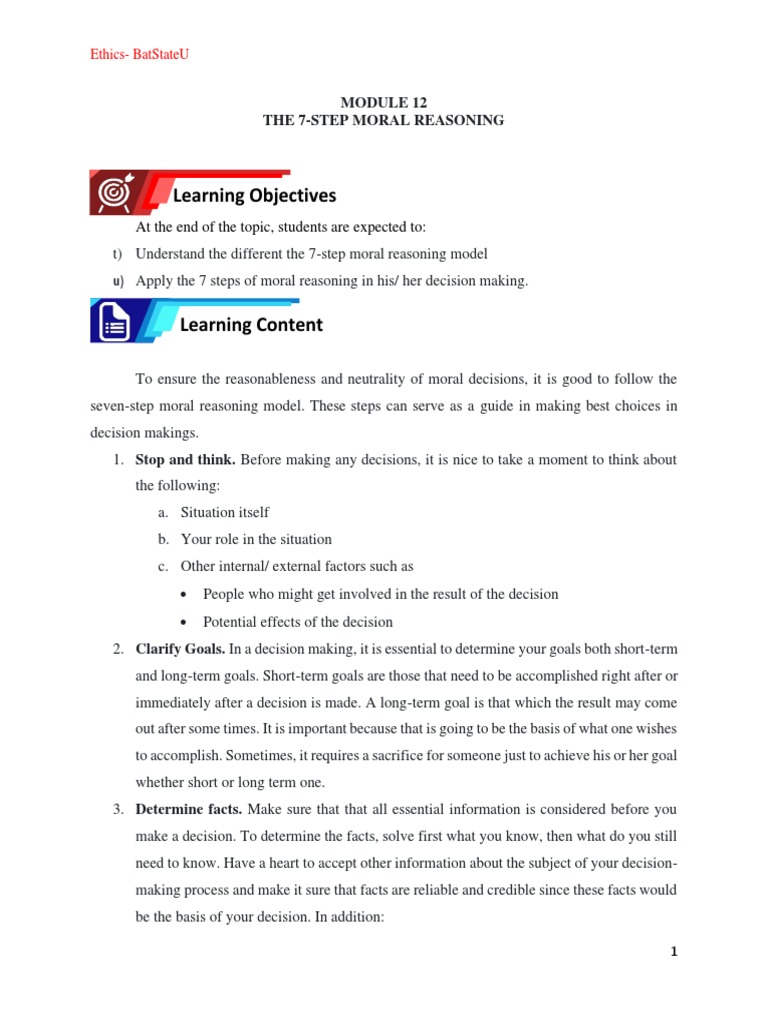Ethics, often perceived as a labyrinth of moral principles, takes on a multifaceted form within the Baha’i Faith. The teachings of Baha’u’llah, the founder of the Baha’i Faith, present a comprehensive framework for understanding morality in a contemporary context. This guide aims to elucidate the moral goalposts that Baha’is aspire to navigate through their ethical decision-making process. The following sections will delineate key aspects of Baha’i ethical teachings, explore various moral dilemmas, and underscore the significance of elevating one’s moral compass.
At the core of Baha’i ethics lies the concept of unity. Baha’is believe that humanity is fundamentally interconnected, transcending artificial divisions such as race, nationality, and creed. This view necessitates an ethical system that promotes collective well-being. The idea of oneness not only motivates Baha’is to approach moral dilemmas with a sense of responsibility but also cultivates an inclusive moral framework. The imperative of viewing oneself in relation to others can serve as a yardstick against which ethical decisions are measured. When confronting moral challenges, Baha’is are encouraged to ponder the broader implications of their choices on the global community.
Central to Baha’i ethical teachings is the principle of justice. Justice, in the Baha’i sense, is not solely the absence of injustice, but the proactive establishment of equilibrium in society. This requires Baha’is to engage in introspection, assessing whether their actions contribute to the larger goal of promoting justice. The Baha’i writings advocate for the pursuit of truthfulness and integrity in one’s dealings. Thus, ethical dilemmas often call for a meticulous evaluation of intentions and consequences. This aligns with the larger Baha’i imperative to cultivate virtues such as honesty, patience, and humility as foundational elements of ethical behavior.
Furthermore, the Baha’i teachings espouse the importance of consultation in moral decision-making. The process of consultation encourages open dialogue among individuals, fostering a culture of shared wisdom and collective insight. Baha’is are often guided to seek the perspectives of trusted friends and community members. It is through this collaborative approach that individuals can achieve a more holistic understanding of the moral landscape confronting them. The act of consulting does not merely serve as a means to a decision; it represents a profound acknowledgment of the interconnectedness that defines human relationships.
Moral decision-making is an inherently complex endeavor, particularly when faced with dilemmas that pit individual desires against communal needs. For instance, consider the ethical implications of environmental stewardship. Baha’is are taught that caring for the environment is not merely a personal choice but a communal responsibility. Decisions about resource consumption must reflect an understanding of the ecological consequences and the implications for future generations. Here, the moral compass aligns with the Baha’i principle of universal responsibility, urging individuals to look beyond immediate gratifications to ensure a sustainable future.
In addition to environmental ethics, Baha’is encounter moral quandaries in relation to social justice. The Baha’i teachings unequivocally denounce racism, sexism, and any form of discrimination. Moral decision-making in this arena requires Baha’is to actively advocate for equality and justice for all. Engaging in social action, educating others about the importance of diversity, and standing against oppression are all seen as moral imperatives. The quest for social justice necessitates a critical examination of societal structures and a commitment to effecting positive change.
In contemplating the implications of economic morality, Baha’is are urged to maintain a balance between material pursuits and ethical considerations. The Baha’i teachings advocate for the realization of economic justice, where profit and fairness coexist harmoniously. This balance entails scrutinizing consumer behavior and recognizing the ethical ramifications of one’s purchasing decisions. The moral guidelines set forth in Baha’i texts encourage individuals to support enterprises that contribute to the well-being of society at large, thereby redefining success in economic terms.
The significance of moral education cannot be overstated in the Baha’i context. Baha’is are encouraged to engage in ongoing learning about ethics, both through study and practical application. The act of introspection and self-assessment is vital in nurturing one’s moral sensibilities. By cultivating virtues and refining one’s ethical understanding, individuals can enhance their moral goalposts, thus contributing to a more just and unified world.
Ultimately, the pursuit of ethics within the Baha’i framework is not merely about adherence to a set of prescribed rules. It is an evolving journey of self-discovery, community engagement, and global responsibility. Baha’is are called to embody the principles of unity, justice, and consultation, which serve as guiding lights in an often tumultuous ethical landscape. By diligently applying these principles, individuals fortify their personal moral compasses, and, in doing so, strive to manifest a world steeped in compassion and justice.
Through this exploration of Baha’i ethical teachings, readers will gain a nuanced understanding of the moral goalposts that shape the Baha’i approach to ethics. These teachings offer a profound opportunity for transformation, urging adherents to engage in a continual process of reflection and action. As society faces increasingly complex moral challenges, the principles enshrined in Baha’i thought reveal pathways toward a more ethical existence. In forging this path, individuals can aspire to contribute to the overarching goal of fostering unity and peace among all humankind.
